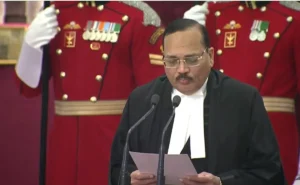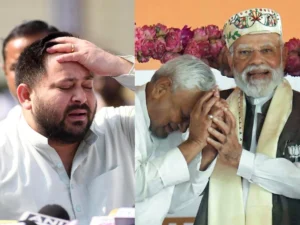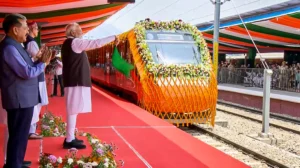Historic diplomatic moves unfold across South Asian nations as Pakistan’s top diplomat visits Bangladesh for the first time since 2011. Pakistan Foreign Minister Ishaq Dar’s arrival in Dhaka marks a significant shift in regional diplomatic relations between these neighboring countries. The visit comes during Muhammad Yunus’s passionate campaign for SAARC revival among regional powers.
Breaking Down the Historic Diplomatic Mission
The 13-year absence of Pakistani foreign ministers from Bangladesh reflects deep political tensions that have shaped regional dynamics. Diplomatic relations between these nations faced severe challenges following various political crises and border disputes over the years. Recent developments suggest both countries now recognize the urgent need for improved cooperation.
Yunus has emerged as a strong advocate for revitalizing the South Asian Association for Regional Cooperation framework. His diplomatic efforts focus on bringing together member nations to address shared challenges like climate change and economic development. The timing of Dar’s visit aligns perfectly with these broader regional cooperation initiatives.
Understanding SAARC’s Current Challenges and Potential
The South Asian regional bloc has struggled with political disagreements and bilateral tensions among member states for years. India-Pakistan tensions have particularly hampered progress on important regional initiatives and economic cooperation agreements throughout the organization’s history. Afghanistan’s political situation has added another layer of complexity to regional diplomatic efforts.
Regional cooperation remains essential for addressing climate change impacts, terrorism threats, and economic development challenges across South Asia. Member nations share common problems that require coordinated responses and shared resource allocation for effective solutions. Trade barriers and political disputes have prevented the region from reaching its full economic potential.
Current SAARC member countries include:
- India and Pakistan as major regional powers
- Bangladesh, Sri Lanka, and Nepal as key participants
- Bhutan, Maldives, and Afghanistan completing the membership
- Observer nations including China, Japan, and European Union
The organization’s headquarters in Kathmandu continues operating despite reduced activity levels in recent years significantly.
Yunus’s Vision for Enhanced Regional Integration
Muhammad Yunus brings unique credibility to regional diplomacy through his Nobel Peace Prize recognition and extensive international experience. His vision encompasses economic integration, environmental cooperation, and people-to-people connections across South Asian borders effectively. The microfinance pioneer understands how regional cooperation can benefit millions of ordinary citizens daily.
His approach emphasizes practical solutions over political rhetoric when addressing long-standing disputes between member nations. Climate change adaptation requires coordinated responses that transcend national boundaries and political disagreements among neighboring countries. Economic development opportunities multiply when nations work together rather than maintaining artificial barriers.
The Nobel laureate advocates for focusing on shared challenges rather than dwelling on historical grievances between nations. His diplomatic style combines academic expertise with grassroots understanding of regional development needs across diverse communities.
Pakistan-Bangladesh Relations: Past, Present, and Future
The relationship between Pakistan and Bangladesh carries heavy historical baggage from the 1971 independence war and subsequent political developments. Diplomatic ties have experienced numerous ups and downs based on changing political leadership in both nations over decades. Recent years have shown gradual improvement as both countries recognize mutual benefits from cooperation.
Trade potential between these nations remains largely untapped due to political barriers and bureaucratic obstacles. Bangladesh’s textile industry could benefit significantly from Pakistani cotton exports through streamlined trade agreements. Energy cooperation also offers promising opportunities for both countries to address their growing power needs.
Ishaq Dar’s visit represents a concrete step toward normalizing relations and exploring new areas of mutual cooperation. His meetings with Bangladeshi officials will likely focus on trade, investment, and cultural exchange opportunities ahead. The visit’s success could pave the way for more frequent high-level diplomatic exchanges.
Regional Economic Benefits of Improved Cooperation
Enhanced cooperation between Pakistan and Bangladesh could create significant economic opportunities for both nations and the broader region. Combined markets of these countries represent over 380 million consumers with growing middle classes seeking diverse products and services. Manufacturing sectors in both countries could benefit from reduced trade barriers and improved connectivity.
The textile and garment industry represents one area where cooperation could yield immediate benefits for both economies. Pakistan’s cotton production combined with Bangladesh’s manufacturing expertise creates natural synergies for regional value chains. Energy sector collaboration could also address power shortages that limit economic growth in both countries.
Financial sector integration through improved banking relationships could facilitate trade and investment flows between the nations. Remittance channels for workers in both countries could become more efficient through enhanced bilateral financial cooperation agreements.
Challenges and Opportunities Ahead
Despite positive momentum, significant challenges remain for successful SAARC revival and improved Pakistan-Bangladesh relations moving forward. Political stability in both countries affects diplomatic continuity and long-term cooperation agreements between the nations. Regional security concerns continue influencing policy decisions and diplomatic priorities.
Yunus’s advocacy for regional cooperation faces skepticism from various political quarters concerned about sovereignty and national interests. Building public support for regional integration requires demonstrating concrete benefits for ordinary citizens in all member countries. Media coverage and public diplomacy will play crucial roles in shaping popular perceptions.
The success of current diplomatic initiatives could inspire similar efforts across other South Asian bilateral relationships. Regional cooperation offers the best path forward for addressing shared challenges while respecting national sovereignty and cultural diversity. Economic integration benefits require sustained political commitment from leadership across all participating nations consistently.








Be First to Comment